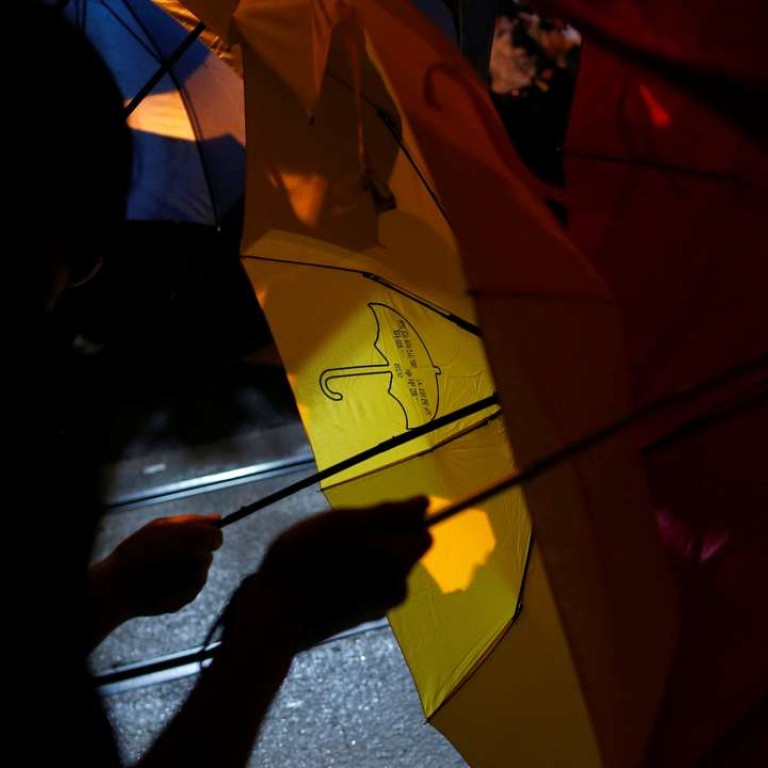
How to save Hong Kong from its whack-a-mole politics
Mike Rowse says the continuing tussles over the Basic Law will not end unless the government addresses the grievance at their roots – the lack of meaningful democratic development
There has been a considerable focus recently on the Basic Law and the rule of law, and their interaction. Perhaps neglected in the process has been a different but relevant concept: the law of unintended consequences, whereby an action gives rise to outcomes unforeseen by the instigator.
Hong Kong’s tortuous path towards political reform is a case in point. The first reference to the idea of universal suffrage for selection of the chief executive comes in Article 45 of the Basic Law, promulgated back in 1990. Looking towards 1997, its purpose was to reassure. Naturally, attention turned to the subject in the early part of this century. While people understood that the move towards universal suffrage had to be in accordance with the “principle of gradual and orderly progress”, the reform package put forward in 2014 was widely perceived as disappointing; the plan to stick with an unrepresentative nominating committee deciding who could enter the race was unpalatable.
Hong Kong needs a clear-eyed view of Beijing’s powers under the Basic Law
Now the government is trying to overturn the election outcome. The practice of banning some potential candidates from standing, then using all means at hand to unseat some of those elected, is a tactic more usually associated with third-world countries following a military coup.
In the short term, the judicial review sought by the chief executive against the decision by Legco president Andrew Leung Kwan-yuen to give Sixtus Baggio Leung Chung-hang and Yau Wai-ching another opportunity to take the oath has been successful. Mr Justice Thomas Au Hing-cheung ruled in the High Court that their oaths were invalid, they should not be given a second chance and their positions should immediately be vacated. Many observers thought he might decline to rule at all, and simply refer the matter back to the Legco president. The problem with one arm of the administration delving too deeply into the processes of another is that it inevitably generates more requests to do so. And, sure enough, we now have legal challenges against more legislators, plus a challenge against the chief executive himself.

Another day, another election – and Hong Kong is still waiting for political reform
Given that, in the past, other Legco members who had politicised their swearing-in and then done it properly second time round were permitted to take up their seats, did Leung and Yau have a “legitimate expectation” that they would enjoy similar treatment? The Legco president certainly thought so, hence his original ruling. Now it is for a higher court to decide.
I don’t think the people are fooled for one minute about what is going on
Meanwhile, the National People’s Congress Standing Committee has sought to clarify Article 104 of the Basic Law, which requires all people concerned to “swear to uphold the Basic Law of the Hong Kong special administrative region of the People’s Republic of China and swear allegiance” to it. But the interpretation is different: it talks of “a legal pledge … to the People’s Republic of China and its Hong Kong Special Administrative Region” (emphasis added). Has something been lost in translation here? Perhaps we need an interpretation of the interpretation.
If, at the end of the day, there are two (or more) vacant Legco seats, then we are in by-election territory. I don’t think the people are fooled for one minute about what is going on. In each constituency, an impeccable opposition candidate will stand, win a majority, and take the oath impeccably. Unfortunately, this tragedy – or farce – will continue until the government starts to address the underlying grievances over the lack of meaningful political reform instead of just hammering the symptoms, which generates new grievances in the process.
Mike Rowse is the CEO of Treloar Enterprises and an adjunct professor at the Chinese University of Hong Kong. [email protected]

